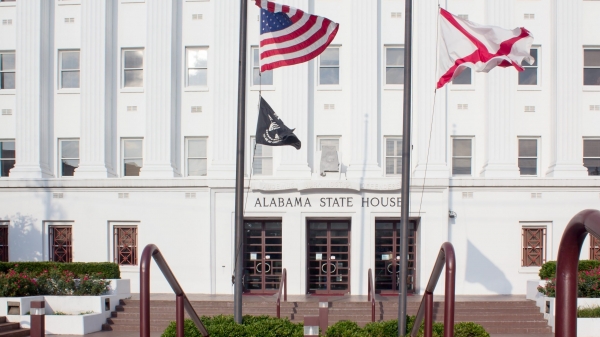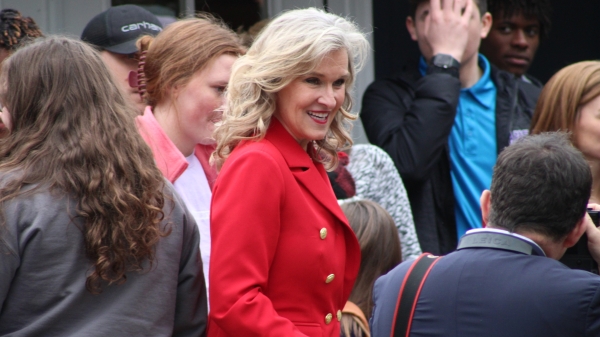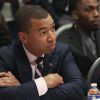By Brandon Moseley
Alabama Political Reporter
On November 18, 2004, the Alabama Republican Assembly passed a resolution opposing the expansion of casino gambling and a lottery in the State of Alabama.
The conservative group wrote: “WHEREAS, the people and candidates who supported expanded gambling were defeated by a large margin; WHEREAS, some have been reported in the media as saying they would be open to discussing expanded casino gambling and a lottery if the legislature is inclined; WHEREAS, gambling has been shown to hurt families and children, and to increase crime and poverty; WHEREAS, the Republican Party should use our victory to “right-size” government as the Governor has said repeatedly: streamlining government, reducing bureaucracy & red tape, and simplifying our system to make it easier for businesses to grow in Alabama and to produce jobs; THEREFORE, BE IT RESOLVED BY the Alabama Republican Assembly that we oppose any expansion of gambling in the State of Alabama.”
Don Wallace is the President of the Alabama Republican Assembly.
Following his reelection, Alabama Governor Robert Bentley (R) has told media sources that the state needs new revenues to fill a projected $250 million shortfall in the State’s general fund. To pay back the Rainy Day Fund and replenish the raided Alabama General Fund the Governor told Alabama Media Group’s Chuck Dean recently that the State might need as much as $750 million.
Alabama is one of the few states in the country to earmark its revenues into two funds: one for education and the other for courts, prisons, the costly Alabama Medicaid Program, and other government functions. The Education Trust Fund is in much better shape than the General Fund but the State legislature has very limited abilities to co-mingle the two funds. To create one fund without earmarks would likely require a state constitutional amendment and a vote of the people: a vote that likely would result in a defeat.
Similarly, an increase in the State income tax or a property tax increase would likely have to go to the voters, who are unlikely to approve anything so controversial. Some sources in the Bentley administration have suggested that the state eliminate a number of tax deductions, including the ability of voters to deduct their federal income and social security taxes from their ‘taxable income’ for calculation of their 5 percent income tax. The Alabama Political Reporter is unclear as to how that would help the General Fund any because it is our understanding that that money would be automatically earmarked for the Education Trust Fund and cannot be legally used for prisons or to subsidize doctors and hospitals through Alabama Medicaid.
Polling has shown that many voters support the concept of a lottery; but for years the lottery has been sold by advocates as a way to pay for college scholarships. The lottery was last voted on 15 years ago and went down to a crushing defeat when it met Alabama voters. That lottery would have gone towards something similar to Georgia’s “Hope” Scholarship Program and most people in Alabama who support a lottery expect that those funds would be used to pay college tuition for their children and grandchildren: would they support a lottery that would not do that; but instead would staff our prisons better and fund a possible Medicaid expansion?
Another possibility is expanding legalized gambling so that operations like Macon County’s shuttered Victoryland Casino could go back into business. There are underutilized casinos of various shapes and sizes at places like: the Birmingham Race Course, Dothan’s Country Crossings, Mobile’s dog track, Greene Track in Greene County, Lowndes County, Bessemer, and Walker County. The State could allow those facilities to reopen in exchange for a substantial tax on their earnings. For the last 8 years the state has methodically shut those casinos down for operating in violation of state law. Would the legislature and the voters approve legalizing video gaming and if they did would they support using most of that money for the struggling general fund, rather than education?
Another possibility would be to enter into a compact with the Poarch Creek Band of Indians (PCI). PCI operates casinos in Atmore, Wetumpka, and Montgomery; but the legality of their operations is very much in question.
PCI went into the gaming business when Greene Track, Ronnie Gilley, and Milton McGregor were all operating under the blessing of Governor Don Seigelman (D). Alabama Attorney General Troy King (R) agreed with the interpretation that bingo, which is legal in Alabama, could be played on an electronic machine similar to an illegal electronic slot machine. Governor Bob Riley (R) strongly disagreed and the State courts sided with Riley, allowing the State to shutter the non-Indian casinos and gaming halls.
Under a 1986 federal law, Indian Tribes are allowed to operate any gaming that any non-Indians are allowed to operate; but when the State shut down the non-Indian gaming, did that make the Indian casinos illegal in Alabama? Alabama Attorney General Luther King (R) thinks so, but he has been blocked from acting by the Obama Administration’s Bureau of Indian Affairs. The state could enter into a compact with PCI allowing them to continue operations in exchange for a percentage in taxes. But would PCI want to add table games and expansion of their business to other markets like Birmingham and Huntsville? And would that generate enough revenue to fix the State’s financial problems?
The Alabama Policy Institutes John Hill, PhD says no. In a recent column, Dr. Hill wrote, “If a compact was established with the Poarch Creeks that gave the State 10% of the tribe’s casino revenues–which totaled $600 million in 2012–the $60 million that would be generated would pay for only 3.2% of the state’s $1.8 billion General Fund budget. If the money was earmarked for schools, it would amount to only one percent of the state’s Education Trust Fund, just enough to pay for 3.7 days of public education.”
Similarly, Dr. Hill wrote, “Lotteries add very little to the bottom line of most states. According to the annual financial reports of lotteries in 2012, revenues from the average lottery covered about 3.6% of total state government expenditures. The actual benefit of lottery revenues offsetting essential state spending is even smaller than this, as several states earmark large amounts of lottery revenues to college scholarship programs and other beneficiaries not otherwise covered by their General Fund.”
Many conservatives argue that the State should accept current revenues and rightsize State government to live within those means and if that means laying off State employees, releasing convicts, and downsizing Medicaid benefits so be it.





















































